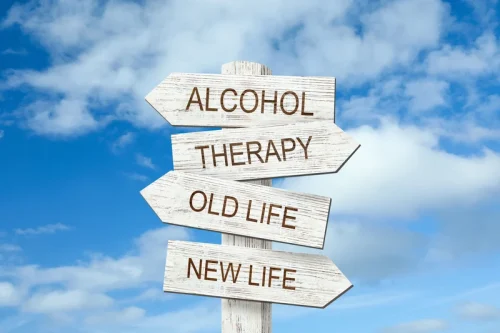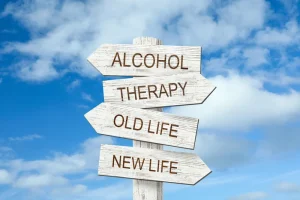
Some of alcohol’s effects on memory are apparent — maybe you wake up after a night of drinking and have a bruise you don’t remember getting, or you don’t recall any of the night’s previous events. Older people are also more vulnerable to injuries from falls due to changes in eyesight, spatial recognition, and bone health. Alcohol use can increase their risks for falls, as it can affect judgement and perception.

Product Reviews
- Diagnosis was made through linkage with mental health services data set, mortality register and national hospital episode statistics.
- During the middle stages of alcohol-related dementia, symptoms become more severe.People in this stagehave more severe memory loss and find daily tasks to be more difficult.
- However, people who do not drink may have given up alcohol after suffering health problems from excessive drinking.
- Firstly, the person is likely to need support to help them stop drinking alcohol.
Neuropsychological and biological markers that can differentiate dementia subtypes are in progress but currently limited. Whether alcohol misuse contributes to an added burden on pre-existing Alzheimer's disease remains an open and ongoing research question, which may be approached in animal models. This is known as alcohol-related brain damage (ARBD) or alcohol-related brain injury (ARBI). Some people with ARBD will only have small changes to their thinking and memory, known as mild cognitive impairment (MCI). They are at risk of more serious brain damage unless they stop drinking.

How Alcohol Is Linked to Memory Loss
- A deficiency of Vitamin B1 (thiamine) is the primary cause of Wernicke-Korsakoff syndrome; however, excessive alcohol consumption may contribute to the deficiency.
- There is currently a debate among scientists about the extent to which alcohol by itself damages the brain, as opposed to the damage from thiamine deficiency.
- Staying alcohol-free can be particularly challenging if the person is homeless or isolated from their family due to drinking too much, or if they have poor physical or mental health.
- Prompt treatment with thiamine (vitamin B1) for people with Wernicke encephalopathy can potentially prevent or lessen the development of Wernicke-Korsakoff syndrome.
Experts noted that France, well known for wine consumption, has an average 0.4% rate of alcohol-related dementia. Alcohol-related dementia is a type of brain disorder where a person develops issues with thinking or processing and memory. It isn't easy to cope with alcohol-related dementia, but there are resources that can help. You may also choose to share your diagnosis with supportive family and friends—you don't have to navigate your condition alone.
- Older individuals are more vulnerable to the short- and long-term effects of alcohol use on their brains.
- Trials should strategically target individuals at the highest dementia risk, identified using risk charts incorporating genetic markers, biomarkers, and cardiovascular risk factors.
- For example, on my way to work, during my lunch break and on the way home.
- Similarly, whereas the terms "Alzheimer's" and "alcoholism" yielded 318 results, "Alzheimer's" and "alcohol use disorder (AUD)" returned only 40 citations.
What is the link between alcohol and Alzheimer's disease?
NICE Guidelines recommend that alcohol consumption be reduced as much as possible, particularly in mid-life, to minimize the risk of developing age-related conditions such as frailty and dementia. The presence of alcohol abuse was screened using the National Alzheimer’s Coordinating Center UDS questionnaire completed by clinicians during patient research visits. Alcohol has a direct effect on brain cells, resulting can alcoholism cause dementia in poor judgment, difficulty making decisions, and lack of insight. In short, alcohol misuse over many years can cause dementia in some cases.

Drinking a large amount of alcohol in a short space of time (such as a single evening) is known as ‘binge-drinking’. It is equivalent to drinking 8 units or more for men and 6 units or more for women. It has been suggested that older people should have lower limits because they are at greater risk of the damaging effects of alcohol. ARBD doesn’t always get worse over time, unlike common causes of dementia such as Alzheimer’s disease. If a person with ARBD stops drinking alcohol and receives good support, they may be able to make a partial or even full recovery.

How is alcoholic dementia treated?

They might not be able to understand new information – for example, they may quickly forget the details of a conversation. They may also not be able to recall knowledge and events, such as where they lived previously or places where they have been on holiday. The two terms https://ecosoberhouse.com/article/wet-mush-brain-from-alcoholism-symptoms-and-dangers/ "alcoholism" and "aging" retrieved about 1,350 papers; adding phrases (for example, "postmortem" or "magnetic resonance") limited the number to fewer than 100 papers. As pertinent postmortem pathology papers were published in the 1950s and recent animal models of Alzheimer's disease were created in the early 2000s, articles referenced span the years 1957 to 2024. In total, more than 5,000 articles were considered; approximately 400 are referenced herein (i.e., only articles directly related to search terms were included).
- The overlap of symptoms makes it crucial for clinicians to carefully evaluate and consider the possibility of an underlying neurologic disorder in these situations.
- The damage to the brain then leads to symptoms that can include issues with a person’s gait, memory loss, hallucinations, and other issues.
- These include a stroke, a bleed caused by physical trauma, or a tumour.
- Both terms refer to a severe type of alcohol-related brain damage (ARBD) and are interchangeable.
- View our list of resources and useful organisations who can support with ARBD.
- These symptoms can include denial, lack of insight and being impulsive.